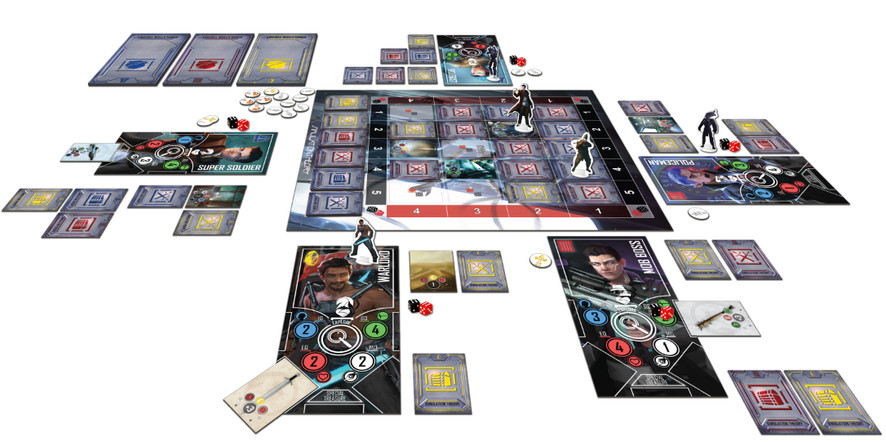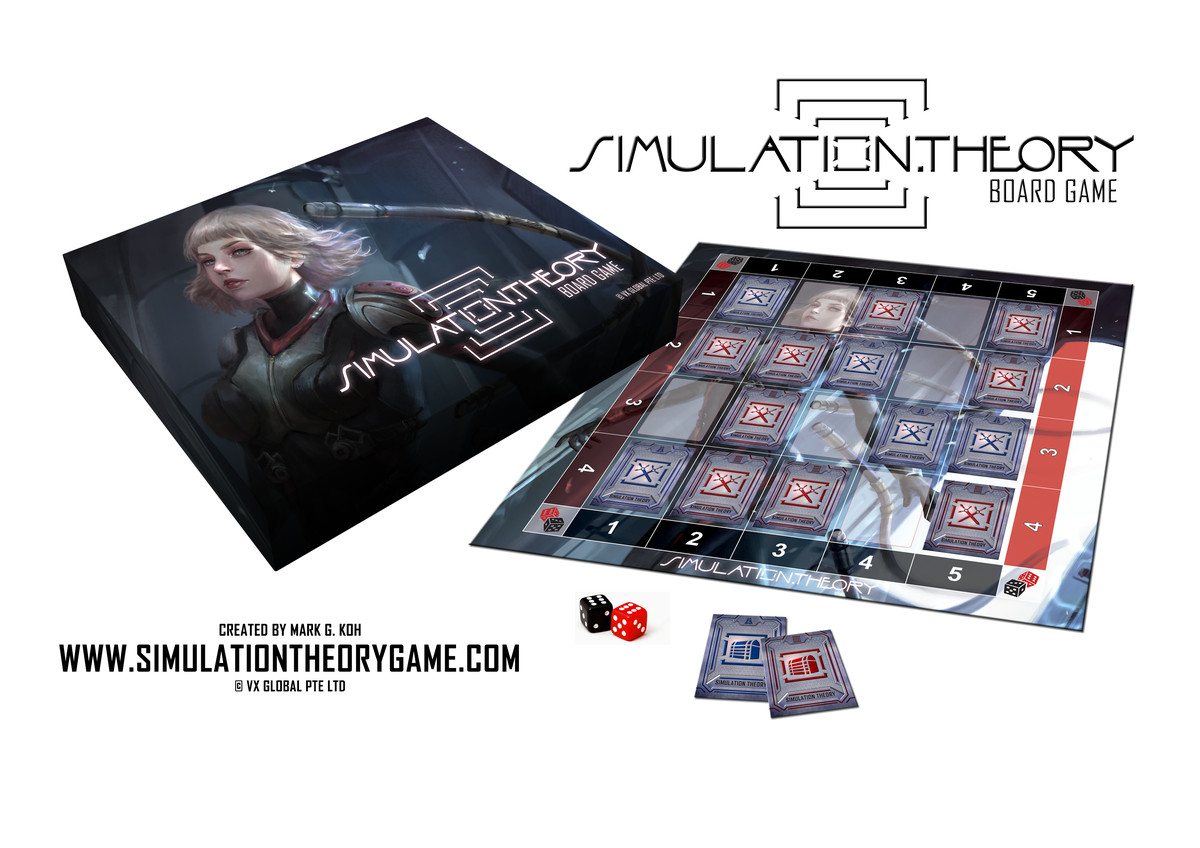Simulation Theory is a board game that seems to think it’s cleverer than it actually is. An RPG inspired take on the matching pairs memory games, Simulation Theory attempts to blend adventure and exploration into a game of virtual realities, where anything is real, and whereas the final game is perfectly functional, the result simply isn’t very exciting.
In Simulation Theory you have been thrust into another reality and your goal is simple, get out. To do this you will have to navigate three themed existences; a fantasy world, the sci-fi universe of the arc and a prison. The goal is simple, find one of the two exits from your current reality, either hidden in the treasure deck or guarded by a boss on the main board.
Whether facing the boss or any other challenge the concept is the same; you will secretly select a skill to use and a grid co-ordinate. Players will then reveal the card at their chosen grid coordinate and if their chosen skill matches or beats the requirement of the card, then well done, you get a shiny card from the treasure deck. If you don’t beat the score, or have chosen the wrong skill, nothing happens, better luck next time.
If two players have chosen the same space and the same skill, then a fight occurs and whoever has the highest chosen skill kills the other player, who then simply discards their character and draws a new one. The rewards for your effort are the treasure cards, and these are simply a boosts to your skills, though you are limited to how you assign them.
And that’s it. If a player finds the exit or defeats the boss they move onto the next reality, taking a new character from that reality and back-filling the board with new cards. Simply put; it’s a race and it’s a race that relies very heavily on luck.
The problem with Simulation Theory (if you haven’t already guessed), is that you’re simply blindly selecting cards from the grid, hoping that you have either randomly selected the right skill or find one of the few treasure maps that provides a reward without any effort. This variation on the match pairing card game (which, by the way, was used to much greater effect in the criminally underrated Wizard’s Academy) may seem like an interesting basis for a game, but in reality adds nothing more than uncontrollable randomness and the barest smidgen of tension.
Your goal, therefore, is to burn through the treasure deck as fast as you can to either find the exit, or find the treasure you need to boost the skill that will defeat the boss. It’s my experience that the exit card hidden in the treasure deck is the quickest way of getting out of that reality and subsequently the game is won completely on randomness.
Much like the virtual reality worlds it is trying to convey, Simulation Theory offers the illusion of choice and the tantalising visage of adventure but is ultimately nothing but empty pixels and the results are wholly unsatisfying.
Simulation theory is on Kickstarter now
Simulation theory is on Kickstarter now
This Kickstarter preview is based on a prototype version of the game provided by the publisher; the
final product may look, play or smell different to that used in this
preview.



Comments
Post a Comment